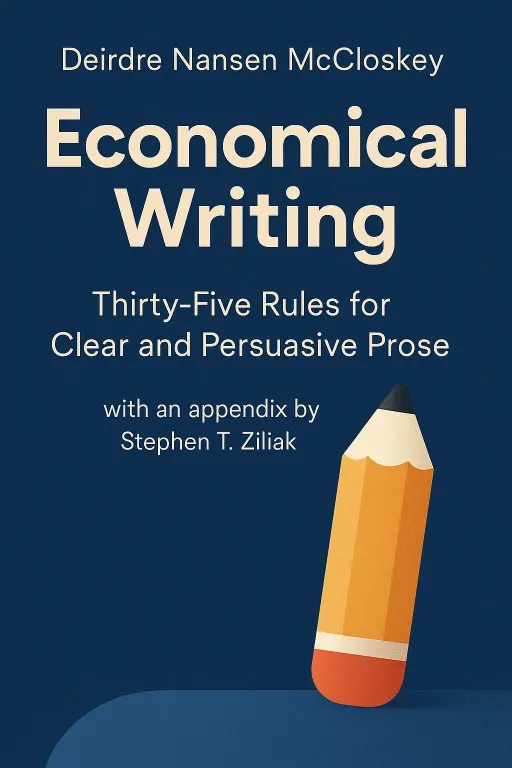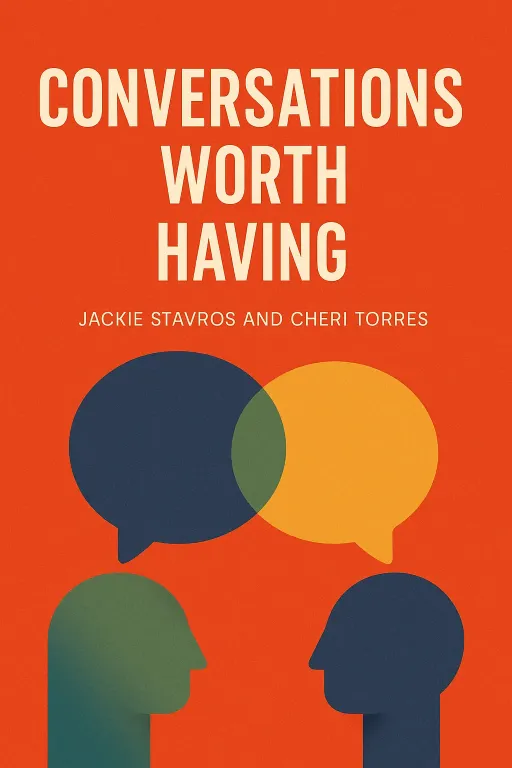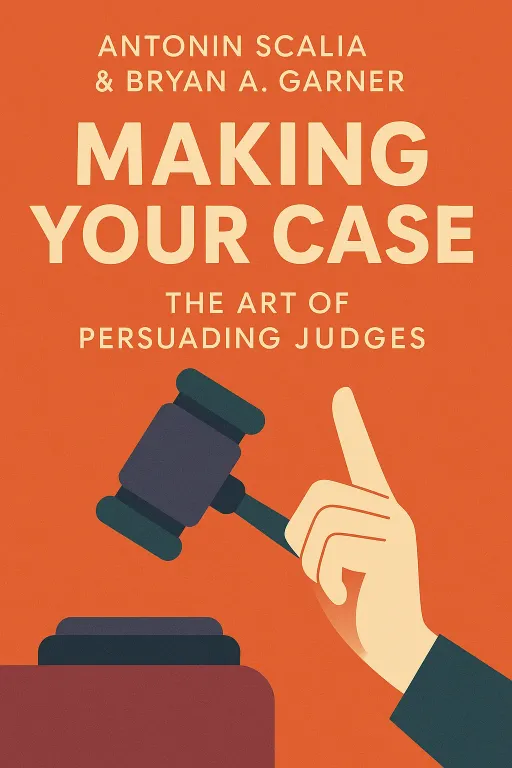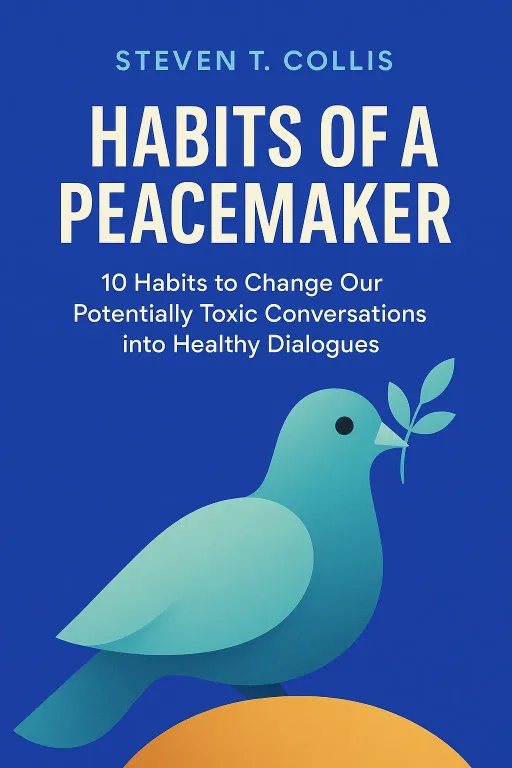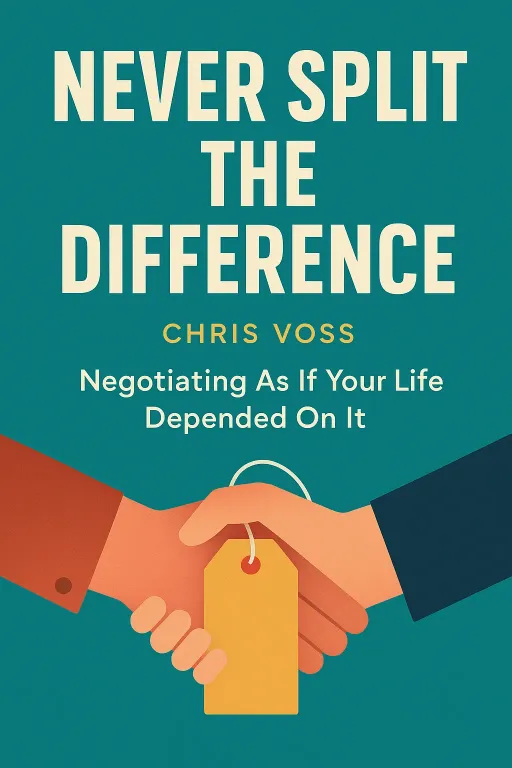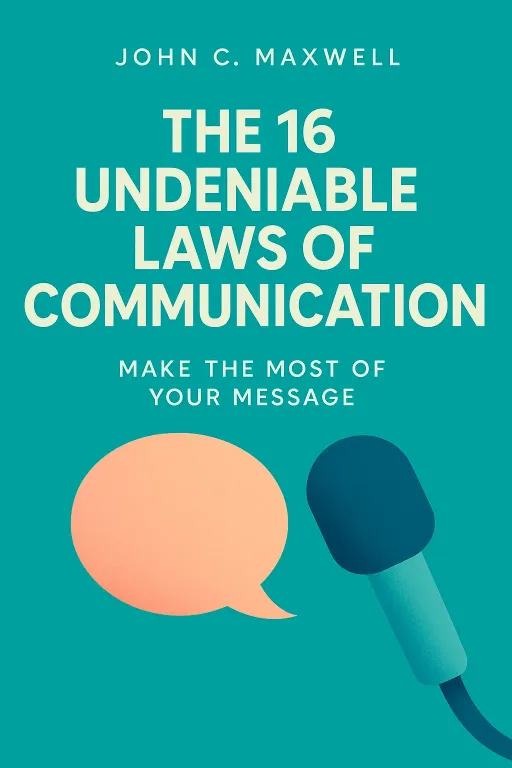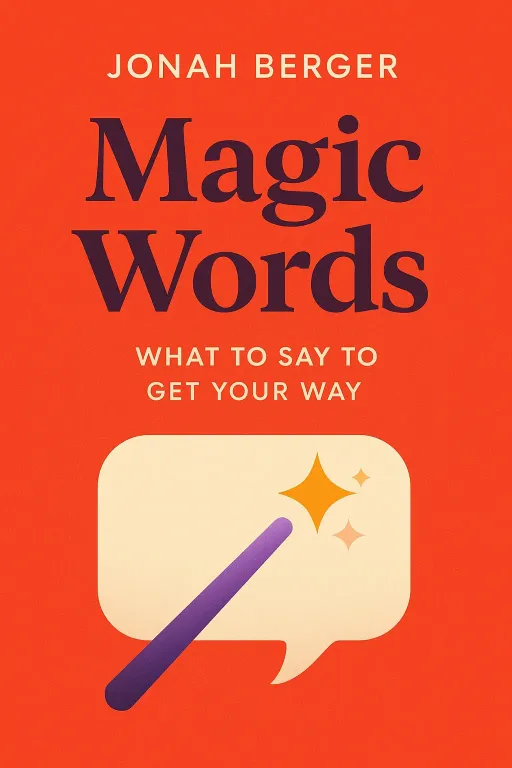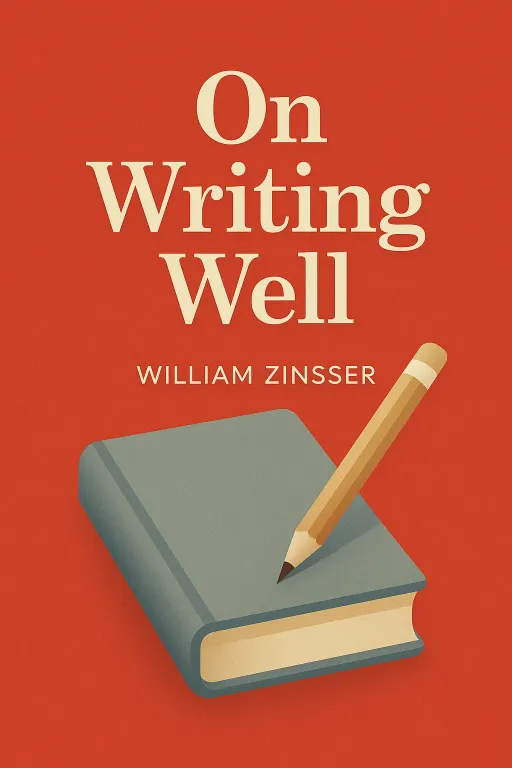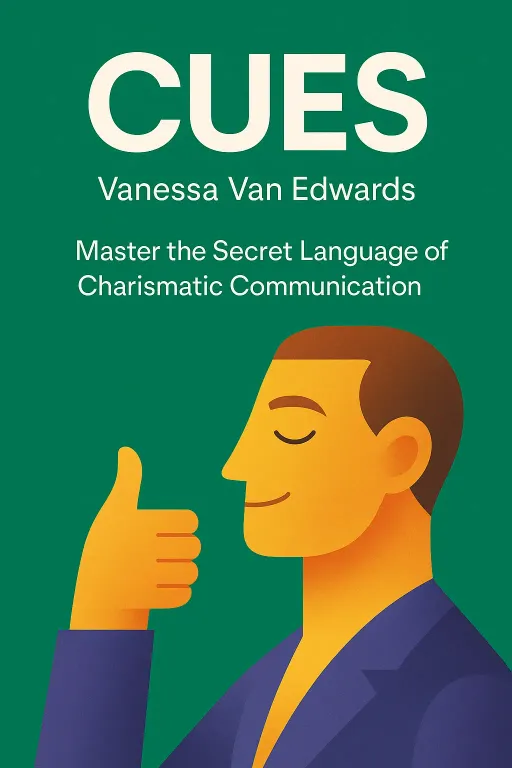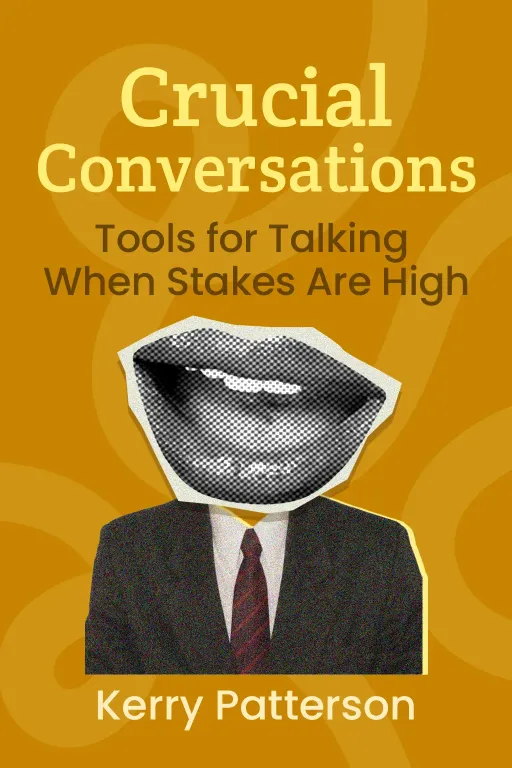
Personalized Podcast
12 minGolden Hook & Introduction
SECTION
Socrates: Imagine this: you're in a critical meeting. Your boss, who you respect, proposes a new strategy. But you see a fatal flaw, one that could cost the company dearly. In that split second, your brain presents you with two terrible options: speak up and risk looking insubordinate, or stay silent and watch the train wreck happen. This is a 'Sucker's Choice,' and it’s at the heart of almost every conversation that goes wrong.
Man: It’s that sinking feeling in your stomach, isn't it? You feel trapped. And you know that either path you choose is going to lead to a bad outcome. It happens in our personal lives, too. With partners, with family. You feel like you have to choose between speaking your truth and keeping the peace.
Socrates: Exactly. And in the book "Crucial Conversations," the authors argue that the best communicators don't choose—they find a third way. They refuse to accept those two bad options. Today, we're going to tackle this book from two different angles.
Man: I'm excited. What's our plan?
Socrates: First, we'll explore how to break free from that very trap, the 'Sucker's Choice.' Then, we'll go deeper and look at the invisible engine that drives our reactions in these moments: the stories we tell ourselves, and how mastering them is the ultimate key to staying in control.
Man: So, we're looking at both the external strategy and the internal mindset. That feels like a complete picture. Let's dive in.
Deep Dive into Core Topic 1: Breaking Free from the 'Sucker's Choice'
SECTION
Socrates: So, Man, that feeling of being trapped between two bad options—honesty or harmony—is universal, right? The book gives a fantastic, almost comical, example of this in action. It’s the story of Brent and Royce.
Man: Okay, set the scene for me.
Socrates: Picture a stuffy, after-school faculty meeting at a high school. It's been going on for hours. A new, eager teacher named Brent is at the front of the room, trying to present his science department's proposed curriculum changes. But there's a problem. His audience isn't just tired; they're distracted by a man named Royce. Royce is a long-time chemistry teacher, a veteran, and he's sitting in the back, theatrically practicing bayonet offensives with a yardstick. He's jabbing and parrying, completely disrupting the meeting.
Man: Oh, wow. I can feel the awkward tension already. Every workplace has a Royce, doesn't it? The person who just hijacks the room with their behavior.
Socrates: Precisely. So Brent is getting more and more frustrated. The other teachers are either ignoring Royce or shooting him annoyed glances, but nobody says anything. Finally, Brent snaps. He stops his presentation, points the remote at Royce, and says loudly, "Am I the only one who finds this behavior completely unprofessional?" The room goes dead silent. Royce freezes. Brent then launches into a lecture about professionalism and respect.
Man: Ouch. So Brent chose the 'honesty' path, but it was a very abrasive form of honesty.
Socrates: He did. And later, when his colleagues were shocked, Brent justified it. He told himself a story. He said, "Well, someone had to have the guts to speak up! I was the only one being honest." This is the perfect illustration of a Sucker's Choice. Brent believed his only options were to be a wimp and stay silent, or be a hero and attack.
Man: That's fascinating because Brent has told himself a story where his only options were to be a 'wimp' or a 'hero.' He chose the abrasive hero role. It reminds me of how we sometimes glorify 'radical candor,' especially in the tech and business worlds, thinking of figures like Steve Jobs. But we often forget the other half of that equation, which is caring personally. Brent's choice was all 'radical' and no 'care.' It's a classic Sucker's Choice.
Socrates: That's the perfect way to put it. He saw it as an either/or. The book's solution is deceptively simple. It's to reframe the question. Instead of asking "Should I be honest OR kind?" you ask an "and" question.
Man: So, in this case, Brent should have paused and asked himself, "How can I address Royce's disruptive behavior and maintain a professional, respectful tone?"
Socrates: Exactly. That simple rephrasing of the question forces your brain out of the fight-or-flight mode and into a creative, problem-solving mode. The answer isn't to publicly shame Royce. Maybe it's to pause and say, "Royce, I can see you've got some energy to burn. Could I ask for your focus for just the next five minutes to get through this section?" Or maybe it's to talk to him privately after. The "and" question opens up a dozen better possibilities.
Man: It moves you from being a victim of the circumstances to an author of the solution. I can see this applying everywhere. In a performance review, it's not "Do I crush my report's spirit OR do I sugarcoat the feedback?" It's "How can I deliver this feedback with absolute clarity and make them feel valued and motivated?" That shift is everything. It's a tool you can use immediately.
Socrates: It is. And the ability to even ask that "and" question depends entirely on your ability to manage your own internal state. Which brings us to our second, and perhaps most powerful, idea: the fact that our emotions don't just happen to us. They're manufactured.
Deep Dive into Core Topic 2: Mastering Your Stories
SECTION
Man: Okay, this feels like the next level. If the Sucker's Choice is about our external options, this is about our internal programming.
Socrates: Precisely. And to understand it, let's look at the story of Maria, a copywriter. Maria is working on a big project with a colleague named Louis. They're due to present their work to their boss. When the day comes, Louis gets up and delivers about 95% of the presentation. He fields almost every question. Maria barely gets a word in.
Man: Okay, I can already feel my own story starting to form about Louis.
Socrates: And that's the key. Let's follow the book's model, the "Path to Action." First, what did Maria see and hear? These are the objective facts. Louis spoke for most of the presentation. Later that day, she saw her boss meeting with Louis alone in his office. Those are the facts.
Man: Right. Undeniable. Just data points.
Socrates: But what happens next? Maria doesn't just process those facts. She tells herself a story about them. Her story is: "Louis is a male chauvinist pig. He thinks I'm incompetent and he's trying to steal this project out from under me. The boss is siding with him because they're both men." She creates a full-blown Villain Story.
Man: And once that story is in her head, it dictates everything else.
Socrates: Everything. The next step on the path is feel. Because of her story, she feels humiliated, angry, and deeply resentful. And that feeling leads directly to the final step: act. How does she act? She gives Louis the silent treatment. When he asks what's wrong, she makes sarcastic jabs, saying things like, "Oh, nothing, I'm sure you've got it all handled."
Man: This is so powerful because the facts themselves are neutral. A person spoke a lot in a meeting. Two people had a conversation. It's the story Maria wrapped around those facts that created the poison. And I have to say, as a woman in the professional world, that story is so easy to tell because it taps into real-world patterns and biases that do exist. It feels true.
Socrates: It feels true. And that's why these stories are so seductive. The book's point isn't that Maria's story is definitely false. It's that acting on it as if it's the only possible truth is what's so destructive. It guarantees a bad outcome. The skill is to challenge the story. The book calls this "Telling the Rest of the Story."
Man: So, what could be the 'rest of the story' for Maria?
Socrates: It's about turning the villain into a human. What if Louis was just incredibly nervous and he over-prepared, so he just steamrolled the presentation out of anxiety? What if the boss just had a quick, five-minute logistical question for him that wasn't worth pulling Maria into? What if Louis thinks Maria is brilliant and was actually intimidated by her?
Man: Any of those could be true. And if she held those possibilities in her mind, her feeling wouldn't be pure rage. It might be curiosity, or even empathy. And her action wouldn't be sarcasm; it would be to schedule a conversation.
Socrates: Exactly. She could go to Louis and start with the facts, not the story. "Louis, I noticed in the meeting that you handled most of the presentation. And I also saw you met with the boss afterwards. I'm starting to tell myself a story that I'm being pushed out of the project. Can you help me understand what's going on?"
Man: Wow. That is a completely different conversation. It's non-accusatory. It's vulnerable. And it invites dialogue instead of declaring war. This is the ultimate self-management tool. It's about creating a pause between the trigger and the response.
Socrates: That pause is everything.
Man: Before reacting to a partner's comment that lands wrong, or a colleague's short email, the skill is to pause and ask, "What's the most generous interpretation of this?" It's not about being naive or a pushover. It's about giving yourself the emotional space to choose a better, more effective response. It puts you back in the driver's seat of your own life.
Synthesis & Takeaways
SECTION
Socrates: So when we put it all together, we have two incredibly powerful, practical tools. First, when you feel trapped in a conversation, refuse the Sucker's Choice by searching for the "and." Force your brain to find a third, more creative path.
Man: And second, when you feel a strong emotion taking over—anger, fear, resentment—recognize that it's not the event, but your story about the event, that's in control. Master your internal stories by separating fact from fiction and challenging your own narrative.
Socrates: These two skills work together. Mastering your story gives you the calm and clarity you need to then go and find the "and" solution. It's a one-two punch for handling almost any difficult conversation.
Man: It really is. And it all comes back to that moment of self-awareness. For anyone listening who wants to put this into practice, I think the challenge is this: the next time you feel that jolt of anger or fear in a conversation, don't just react. Don't fire off the angry text. Don't make the sarcastic comment. Just stop.
Socrates: Just for a second.
Man: Just for a second. And ask yourself one question: "What story am I telling myself right now?" That single pause is where all the power lies. It's the first step to turning a crucial conversation from a battle into a breakthrough.
